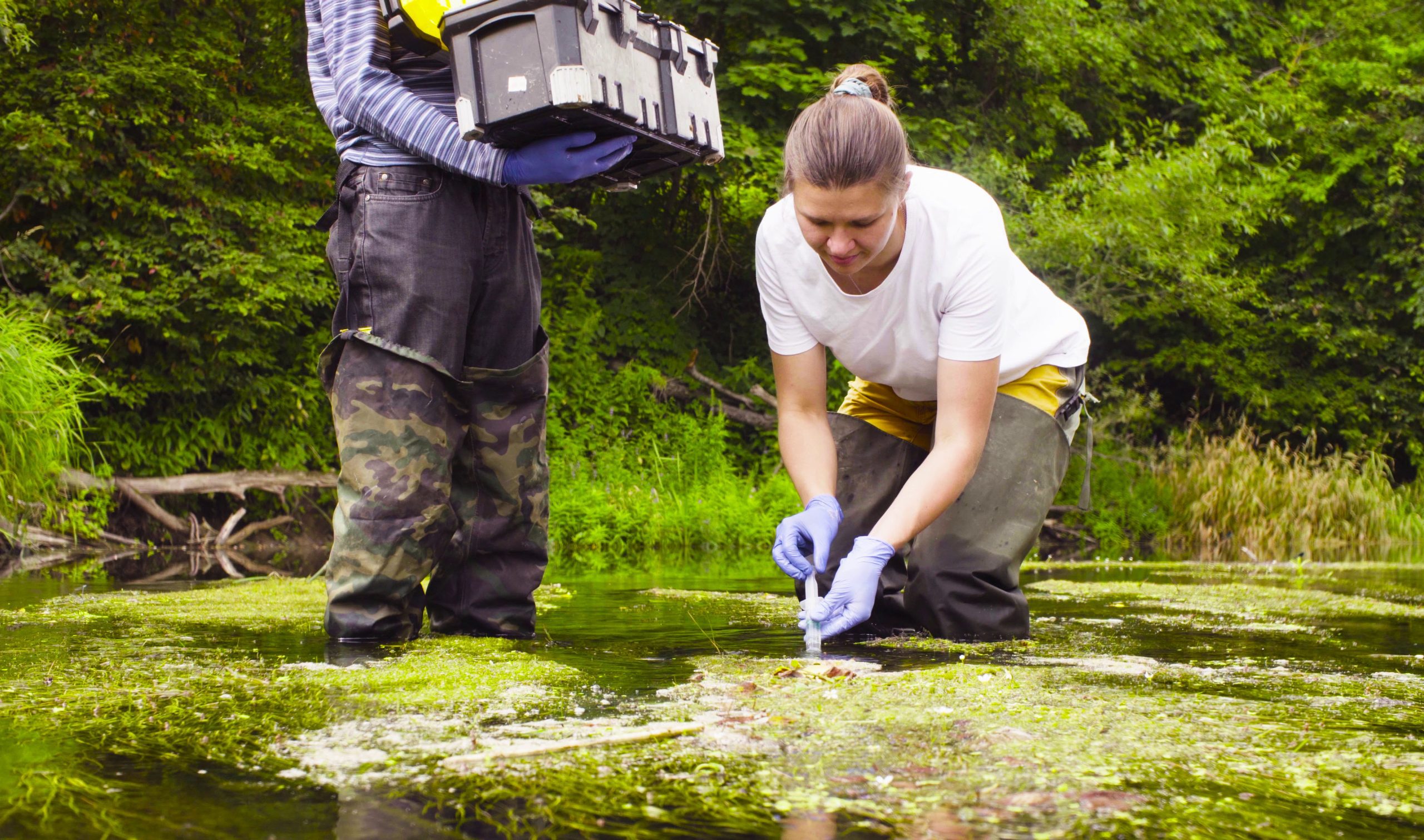
Ecologists help to preserve and restore the natural environment by providing crucial information on how human activity affects individual species and ecosystems.
As an ecologist, you will be interested in ecosystems, which include the number and distribution of things (people, plants, and animals) and the relations between species and their environment. You’ll often specialise in a specific region, such as freshwater, marine, terrestrial, fauna, or flora, and carry out various activities related to that area.
To begin, you’ll perform surveys to identify, record, and monitor species and habitats. Your employment will become more diversified as you develop in your career, and in a senior position, you may be involved in policy and managerial activities.
Responsibilities
As an ecological scientist apprentice
- carry out fieldwork
- survey and record information on plants, animals, environmental conditions and biodiversity
- deliver lessons or lectures.
As a consultant ecologist apprentice you could:
- research the impact of human activity, like housing and intensive agriculture, on the environment
- build computer models to predict the effects of development or climate change
- research and contribute to legislation and policy.
As a landscape ecologist apprentice , you could:
- manage and create wildlife conservation areas, woodland and meadows
- monitor species and habitats
- manage a team of volunteers.
Salary
- An assistant ecologist apprentice role is usually in the region of £18,000 to £22,000, depending on experience.
- With a few years’ experience you could earn between £22,000 and £30,000.
- As a senior/principal ecologist, you can expect to earn in the range of £30,000 to £45,000.
Working hours
Working hours and conditions vary based on the job and your level of seniority. For example, more senior positions, like most jobs, tend to incorporate more office-based administrative activities. In addition, the hours you work may be dictated by the species you work with, such as bat surveys, which must be completed at night.
Environmental consultants’ working hours vary depending on immediate deadlines, which provide busier periods, typically working 39 to 41 hours per week.
Working environment
You could work in the countryside, at a university, in an office or in a laboratory.
Your working environment may be outdoors in all weathers.
Qualifications
Qualifications you can achieve as an apprentice ecologist include:
- Level 7 Ecologist – Entry requirements for this level include 4 or 5 GCSEs at grades 9 to 4 (A* to C) and A levels, or equivalent, for a higher or degree apprenticeship. This qualification will take 36 months to complete.
Skills
On an ecologist apprenticeship, you’ll learn:
- maths knowledge for surveying and reporting
- analytical thinking skills
- thinking and reasoning skills
- to be thorough and pay attention to detail
- persistence and determination
- the ability to use your initiative
- excellent written communication skills
- concentration skills
- to be able to use a computer and the main software packages competently.
Employers
Competition can be fierce in this sector, so gaining as much experience in ecological surveying as you can is essential.
A range of organisations employ ecologists, including:
Nature conservation agencies:
- Natural England
- Natural Resources Wales
- Northern Ireland Environment Agency
- Scottish Natural Heritage
Professional development
Although you will be taught on the job, most employers expect you to have basic surveying and identification skills due to your degree and previous work experience.
Look for external training courses you can do while working. Your firm may be willing to provide a training budget for this reason. In addition, mentoring from a more senior colleague may be available.
Membership in professional organisations such as the CIEEM and the Institute of Environmental Management and Assessment allows you to attend training events and conferences and get support with your continuous professional development (CPD) (IEMA).
You have many possibilities if you want to study ecology or environmental management at the postgraduate level. Special courses are also available, such as the MSc in Biological Recording offered by Manchester Metropolitan University in partnership with the Field Studies Council (FSC) and the Botanical Society of Britain and Ireland (BSBI).
Career prospects
Promotion is usually more structured in larger organisations, where you may work your way up to senior and chief ecologist positions. Otherwise, changing occupations or areas of expertise may help you progress.
Senior positions are often more office-based, with you overseeing administrative tasks like budget planning and staff management.
You may become a Chartered Ecologist (CEcol) and join the CIEEM’s Register of Chartered Ecologists if you have the necessary experience and qualifications. You may also become a Chartered Environmentalist (CEnv) by joining one of the Society for the Environment’s recognised professional organisations (SocEnv).
After having sufficient expertise, you can establish your consultancy as an individual consultant providing specialised knowledge or in partnership with other ecologists providing a broader advisory service.
